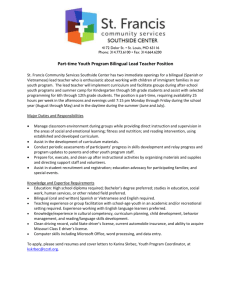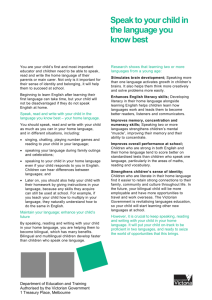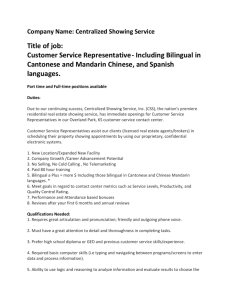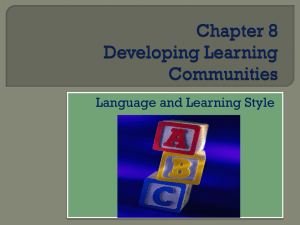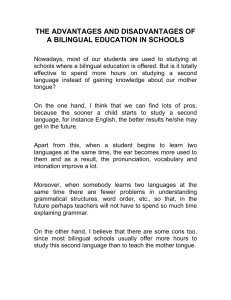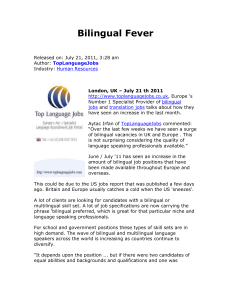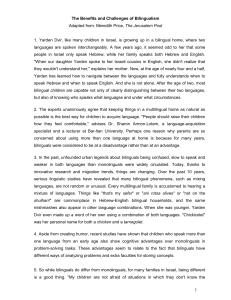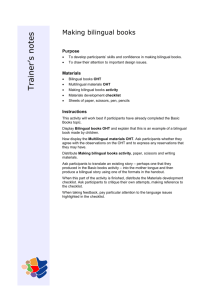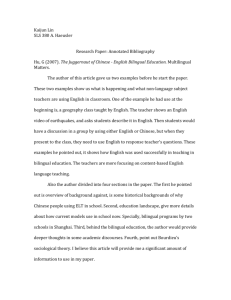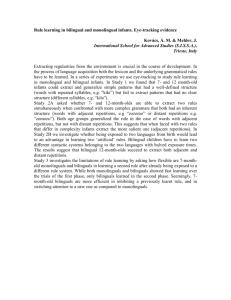Why Learn a Second Language ( 838.2KB)
advertisement
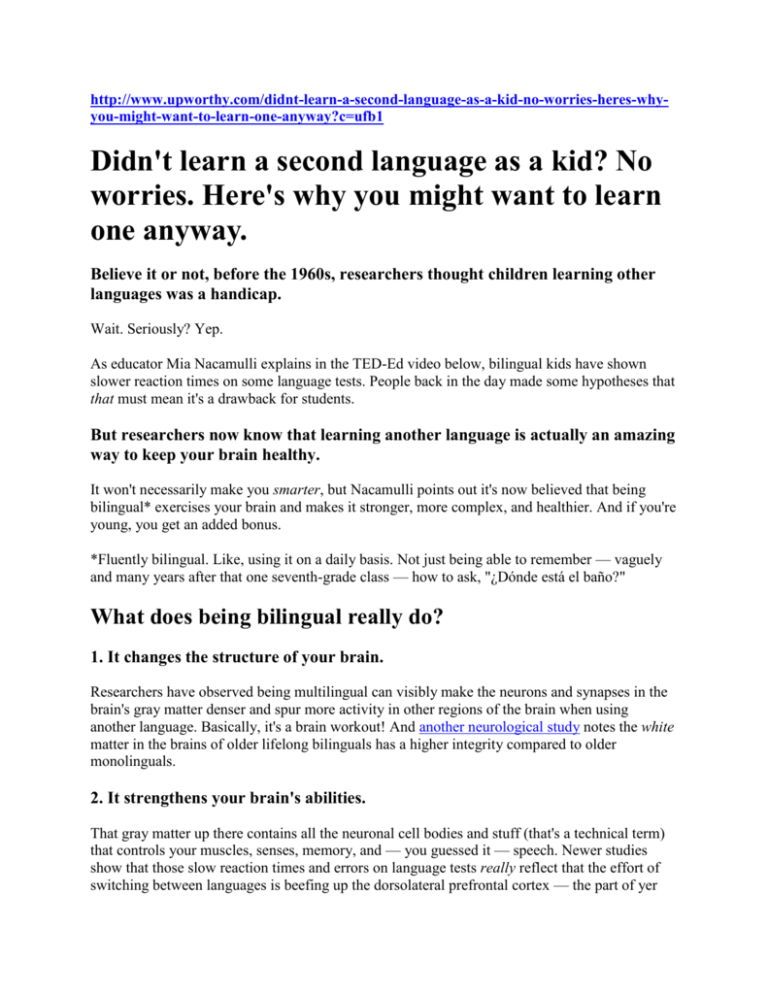
http://www.upworthy.com/didnt-learn-a-second-language-as-a-kid-no-worries-heres-whyyou-might-want-to-learn-one-anyway?c=ufb1 Didn't learn a second language as a kid? No worries. Here's why you might want to learn one anyway. Believe it or not, before the 1960s, researchers thought children learning other languages was a handicap. Wait. Seriously? Yep. As educator Mia Nacamulli explains in the TED-Ed video below, bilingual kids have shown slower reaction times on some language tests. People back in the day made some hypotheses that that must mean it's a drawback for students. But researchers now know that learning another language is actually an amazing way to keep your brain healthy. It won't necessarily make you smarter, but Nacamulli points out it's now believed that being bilingual* exercises your brain and makes it stronger, more complex, and healthier. And if you're young, you get an added bonus. *Fluently bilingual. Like, using it on a daily basis. Not just being able to remember — vaguely and many years after that one seventh-grade class — how to ask, "¿Dónde está el baño?" What does being bilingual really do? 1. It changes the structure of your brain. Researchers have observed being multilingual can visibly make the neurons and synapses in the brain's gray matter denser and spur more activity in other regions of the brain when using another language. Basically, it's a brain workout! And another neurological study notes the white matter in the brains of older lifelong bilinguals has a higher integrity compared to older monolinguals. 2. It strengthens your brain's abilities. That gray matter up there contains all the neuronal cell bodies and stuff (that's a technical term) that controls your muscles, senses, memory, and — you guessed it — speech. Newer studies show that those slow reaction times and errors on language tests really reflect that the effort of switching between languages is beefing up the dorsolateral prefrontal cortex — the part of yer noggin' that controls problem-solving, switching tasks, and focusing on important stuff while filtering out what's irrelevant. 3. It can help delay Alzheimer's and dementia by as much as four or five years. Yes. Sí. Oui. When bilinguals are compared to monolinguals, that is. And although some cognitive research notes there's still a similar rate of decline after onset, more years of a superstrong brain is always a good thing. Now, this fourth one gets a little bit nuts. Nacamulli says it's believed there's a key difference between a young bilingual person and someone who learns another language in adulthood. 4. There's a theory that children who are bilingual get to be emotionally bilingual. The parts of the brain that are being strengthened while speaking multiple languages include not just the analytical and logical side of the brain but the emotional and social side as well. It's called the critical period hypothesis. GIF via TED-Ed. The separation of the hemispheres increases as we grow up, so when you're a kid — the hypothesis holds — the two sides are a little more plastic and ready to work together while learning language. Nacamulli says this could be why children seem to get the contextual social and emotional nuances of other languages better than grown-ups who became multilingual later and instead often think ... well ... like grown-ups. Speaking more than one language turns our brains into powerhouses, and it makes our children more emotionally intelligent! It's definitely not a handicap. It's a superpower.

